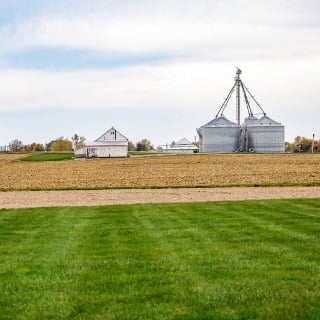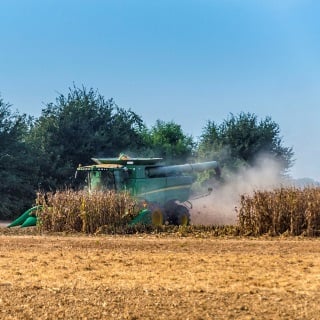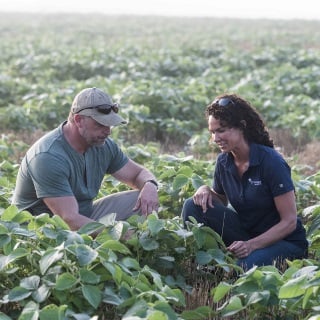FFA students around the country have to be ready to answer all kinds of questions when they show animals — about their anatomy, their care, their health. But would they be ready for this question?
“They asked me if the donkey could fly,” Aubrey Wells remembers when speaking to a first grader. “Then they asked if it was a cow or a horse.”
This wasn’t in the show ring, of course. It was at an annual event called Animals for Learning. Aubrey and her fellow FFA members at Seneca High School in Louisville, Kentucky, host the event to teach students and adults from their community about animals and agriculture.
Seneca FFA isn’t your typical FFA chapter. Today, not a single one of its members has come from a farming background. It’s based in an urban high school and is one of the most diverse in the district, with immigrant populations from the Balkans and from Africa.
Yet Seneca FFA has grown to 60 members and regularly scoops up more community service awards than other chapters in its region. The students host educational events and work with the city of Louisville to promote conservation and urban agriculture, along with many other community service projects. In October, Farm Credit Mid-America sent 20 members to the FFA National Convention in Indianapolis, a remarkable turnout. Nationally, Farm Credit recently recognized the chapter with a Fresh Perspectives Award given to individuals and organizations who are finding innovative ways to advocate for agriculture. Fresh Perspectives is part of the organization’s 100th anniversary.
Kristan Wright is one of Seneca FFA’s advisors. She grew up on a farm in Henry County, Kentucky, and still farms corn, soybeans and tobacco today, along with “a little bit of everything as far as animals,” as she says. “My husband calls it a petting zoo. We bring the animals to school and take them to events in the community.”
The students don’t see animals around them in their urban neighborhoods, Wright notes, so her mobile petting zoo along with the rabbits and chickens the students raise at school are their first introduction to animal agriculture.
Wright was active in FFA as a youth and says that, in many ways, her chapter at Seneca is just like any other FFA chapter, right down to the blue jackets. But the school’s setting and the students’ backgrounds make it unique. “We bring in some things that aren’t traditional,” she says. “We’re not going to do every contest. We do the ones that are related to what we teach.”
Animal science is particularly important to the Seneca students, and they especially look forward to the full-day pre-veterinary competition, which they won last year. Seneca is the only high school in its county where students can enroll in pre-veterinary and horticulture programs, which Wright leads.
Aubrey chose Seneca High School because of the pre-vet program. “I’ve wanted to work with animals since before I could walk,” she says. She’s planning a career in the natural sciences, working with wildlife, and she says, “FFA opened my eyes. There’s even more to it than I thought. It made me love animals even more.”
As a senior, Aubrey has now been to her last national convention and can see how far she’s come in four years by watching the younger FFA members. “You get to see the underclassmen come out of their shell,” she says. “You get to see them grow like I did.”
Maybe she’ll be one of the many alums who stop by Seneca to inspire the students who are following in their footsteps.
“We have [alums] in the school almost every day,” Wright says. “Just yesterday a girl who graduated last year was here. She’s studying equine medicine at Morrisville State in New York. It’s cool for the kids to see she’s doing that.” Last year, more Seneca seniors went on to study agriculture than ever before.
But even if they don’t put their ag education to use directly, youth like Aubrey will have developed skills they’ll use their whole lives. They’ll know how to politely let anyone know that donkeys don’t have wings.
“FFA is not just for people who want to farm,” Wright says. “It’s for everyone.”






